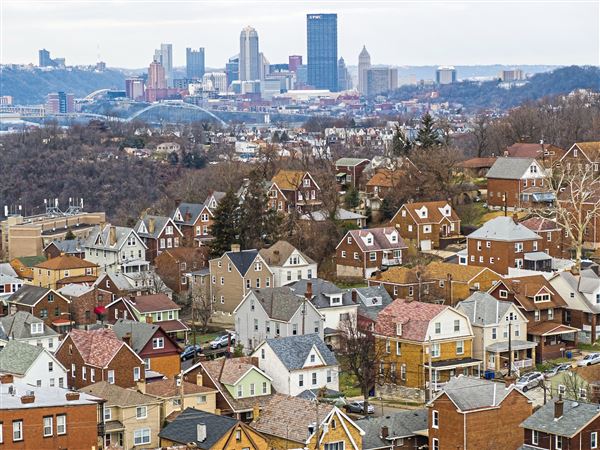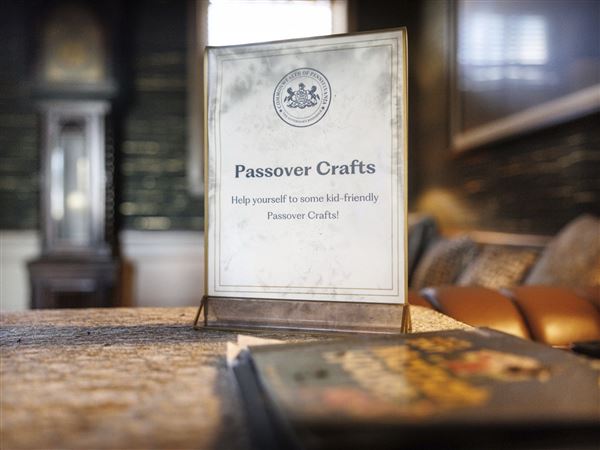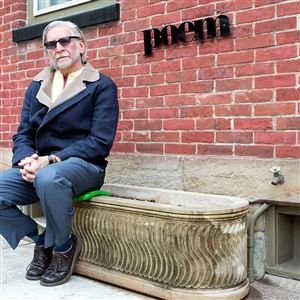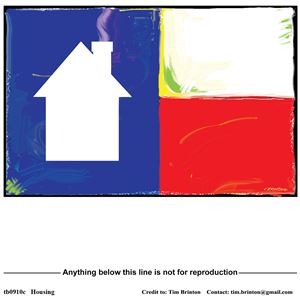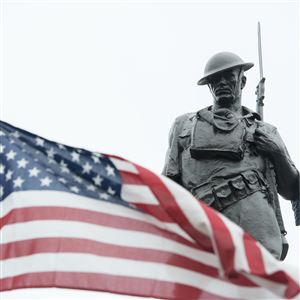Lawrenceville’s real estate market is commanding prices that astonish longtime residents at a time when 30 percent of the neighborhood’s population lives in or near poverty and 262 properties languish in tax delinquency.
That dichotomy is at the heart of the desirability of a 2012 treasurer’s sale reject, a row house at 184 34th St.
On one side, the Lawrenceville Corp., a development nonprofit, wants to secure it in a fight for affordable housing and responsible balance.
On the other, four private investors are contesting the city’s pending sale of the property to the Lawrenceville Corp. for $1,000. They maintain the neighborhood no longer needs nonprofit stewards or the property reserve established for them in 1996.
The city is under agreement to sell 184 34th St. to the Lawrenceville Corp., and city council authorized the sale, but the city filed a petition on Feb. 10 on behalf of objector Robert Hartle, who agrees to bid more than $1,000 if an auction were held.
Common Pleas Judge R. Stanton Wettick of Allegheny County is scheduled to determine today whether Lawrenceville Corp. has standing to intervene.
“The city should want more than $1,000,” said Mr. Hartle of Highland Park. “The economic landscape was much different [in 1996]. The neighborhood might have needed a nonprofit to get the ball rolling then, but I think it’s time for the city to rethink its strategy.”
Lawrenceville’s shells attract developers who want to renovate them for resale. The sales prices for those range from $50,000 to $70,000. Fifteen years ago, $100,000 was the ceiling price of homes in move-in condition in Lawrenceville. Last year, 11 properties sold for more than $400,000.
RealStats, a real estate information service, reports that home prices have almost tripled in Lawrenceville in 15 years, from an average $46,000 to $130,000 in 2014. Two-bedroom homes with one bath are fetching $200,000 to $300,000.
Yet there are the derelict, so-called untouchables — houses whose owners are hard to find, with back taxes and heavy liens. Most developers don’t go after them because of the entanglements.
Matthew Galluzzo, executive director of the Lawrenceville Corp., said private bidders can compete in treasurer’s sales and should not be allowed to gather at the end of a lengthy process for spoils that wouldn’t even be available had neighborhood groups not pushed for clear title years before.
“To lose properties at the end of the process threatens the certainty so many nonprofits rely on to change neighborhoods,” he said, citing the property reserve as the tool that has helped the Bloomfield Garfield Corp. turn Garfield around. In spite of Lawrenceville’s success, he said, “there is still significant dysfunction, and our job is to work in that broken place.”
No one bid on the property at 184 34th St. at a treasurer’s sale in July 2012. Properties in that process have to be tax delinquent for at least two years, not in foreclosure or bankruptcy and vacant. Back taxes are normally forgiven by the three taxing bodies: the city, Allegheny County and the Pittsburgh Public Schools.
The process typically takes two or more years. The city has to confirm the properties are eligible. Interested buyers need time to submit proposals, which the URA needs time to review. The deed holder has to be notified and given time to reclaim the property.
There’s an advertising period before the sale, and afterward, lien holders are notified. City council has to authorize the sale for the property to go into the property reserve. Then the city begins the process to order a title report, title insurance, petition the court for title, notify all lien holders that this is the last chance to collect their debts and then wait for the “free and clear” from a judge.
One outstanding lien remains on the 34th Street property. Once that is satisfied, a closing date can be set.
The Lawrenceville Corp. spends an average of $4,500 for derelict city-owned properties — $1,000 to the city and other expenses, said Ed Nusser, its land use coordinator. The low price enables nonprofits to rehabilitate derelict homes for affordable resale, but most community development groups direct properties they buy and resell for a mix of affordable and market rate.
The last eight properties the Lawrenceville Corp. has bought from the property reserve has resold for an average of $11,500, Mr. Nusser said. Several of its properties have second deferred mortgages for lower-income residents, he said.
The market is finally doing what Lawrenceville’s advocates worked years to make happen. Now they are refining their stewardship role.
“Just selling to the highest bidder does not hit on community goals,” Mr. Galluzzo said. “Part of this is an issue of control as a place-based public trust. We are responsible to make sure a portion of properties are affordable, responsibly renovated and comport with the neighborhood plan. This neighborhood is under siege by the flipping culture.”
Rich Allen of Cranberry has bought houses at treasurer’s sale and has renovated two other houses in Lawrenceville — one he sold a month ago for $139,000. “Very affordable, a smaller house on maybe not the best street,” he said. “But it went fast.”
He said he hopes to be able to bid on the property at 184 34th St. to renovate it as a rental.
“It would be more beneficial for the taxpayer,” he said. “The city is going to sell it for $1,000 but we’re willing to pay way more than that.“
Mr. Hartle said he “can get behind” Lawrenceville Corp.’s interest in rehabilitating blighted properties.
“I am interested in developing the property and putting it back on the tax rolls, too. It’s going to need a significant amount of work, but asking prices in Lawrenceville are through the roof. If somebody is willing to pay tens of thousands of dollars for a shell, the market there will support a nice renovation.”
First Published: March 13, 2015, 4:00 a.m.
